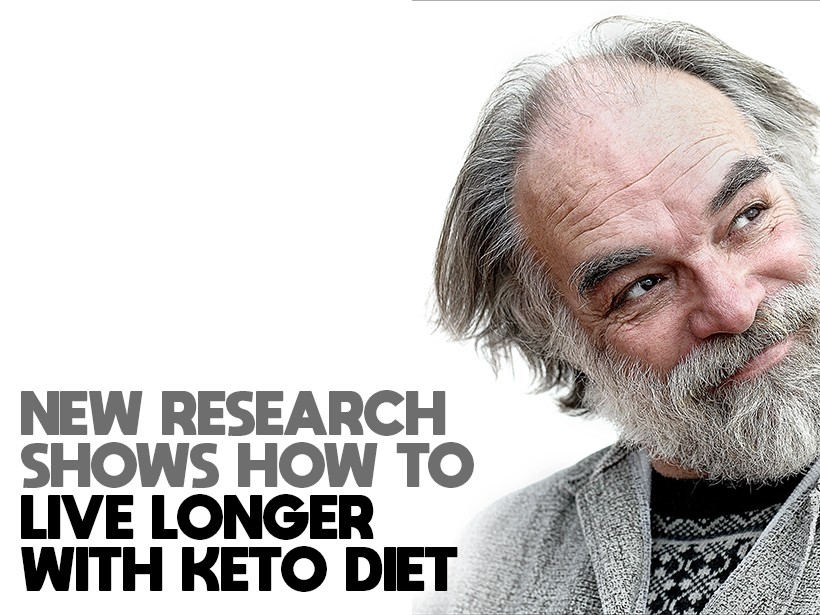New research shows that people on a keto diet may live longer.1 This phenomenon is thought to be a result of chromosome lengthening at the telomeres. Here’s how it works.
What are telomeres?
Chromosomes are structures found in each of your cells that contain all your genetic information (DNA); you have 24 of them in each cell. Telomeres are structures found at the ends of your 24 chromosomes and are made of DNA with tiny functional units called base pairs. They are like little caps at the ends of each chromosome to keep them from being destroyed by your body’s defenses. Interestingly enough, the length of your telomeres is related to your age and health.2 For example, research shows that individuals with short telomeres are at higher risk for diseases like diabetes or cancer.3,4
What effect does consumption have on telomere length?
Diet has an effect on telomere length. Certain foods contribute to longer telomeres thus reducing age and risk of disease. For example, there is a link between high consumption of nuts and seeds with long telomeres, resulting in decreased aging.5 In this study of 5,582 men and women, it was demonstrated that nut and seed intake was linearly associated with telomere length; in other words, by consuming more nuts and seeds, the participants lived longer as indicated by DNA in the participant's blood samples. There was also a relationship between high consumption of processed meats and short telomere length, resulting in increased aging.6 This study, in particular, followed 840 white, black, and Hispanic adults in the Multi-Ethnic Study of Atherosclerosis where the participants were studied for the relationship between telomere length and their dietary patterns. It became apparent that the more processed foods the participants ate, the shorter their telomeres got as indicated by DNA from the participant's blood samples.
What foods should I eat on my keto diet to live longer?
Foods that are rich in fats, protein and oils include:
- Fatty Fish
- Shellfish
- Animal Fat (non-hydrogenated)
- Lard
- Tallow
- Avocados
- Egg Yolks
- Macadamia/Brazil Nuts
- Butter/Ghee
- Mayonnaise
- Coconut Butter
- Cocoa Butter
- Olive Oil
- Coconut Oil
- Avocado Oil
- Macadamia Oil
- MCT Oil
- Meats: beef, pork, poultry, veal, goat, lamb, and turkey
- Nut Butter
- Organs: heart, liver, kidney, and tongue
NUTRITIONAL DISCLAIMER
The content on this website should not be taken as medical advice and you should ALWAYS consult with your doctor before starting any diet or exercise program. We provide nutritional data for our recipes as a courtesy to our readers. We use Total Keto Diet app software to calculate the nutrition and we remove fiber and sugar alcohols, like erythritol, from the total carbohydrate count to get to the net carb count, as they do not affect your blood glucose levels. You should independently calculate nutritional information on your own and not rely on our data. The website or content herein is not intended to cure, prevent, diagnose or treat any disease. This website shall not be liable for adverse reactions or any other outcome resulting from the use of recipes or recommendations on the Website or actions you take as a result. Any action you take is strictly at your own risk.
- Study Says Ketogenic Diet Can Improve Sleep - May 9, 2018
- New Research Shows How to Live Longer with Keto Diet - May 8, 2018
- Studies Examine How Keto Affects Immunotherapy Cancer Treatments - May 1, 2018































